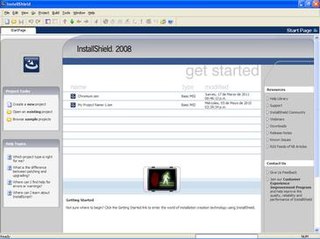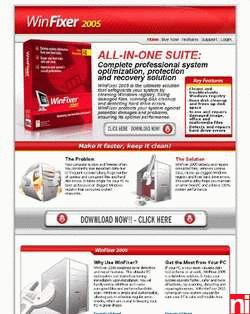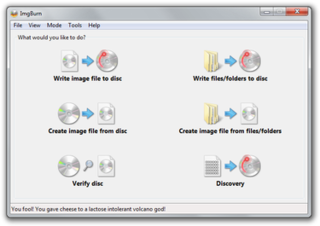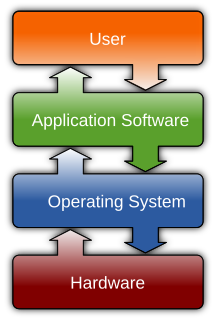
The Beastie Boys were an American hip hop group from New York City formed in 1981. The group comprised Michael "Mike D" Diamond, Adam "MCA" Yauch and Adam "Ad-Rock" Horovitz.

A computer worm is a standalone malware computer program that replicates itself in order to spread to other computers. Often, it uses a computer network to spread itself, relying on security failures on the target computer to access it. Worms almost always cause at least some harm to the network, even if only by consuming bandwidth, whereas viruses almost always corrupt or modify files on a targeted computer.

TiVo Corporation is an American technology company. Headquartered in San Jose, California, the company is primarily involved in licensing its intellectual property within the consumer electronics industry, including digital rights management, electronic program guide software, and metadata. The company holds over 6,000 pending and registered patents. The company also provides analytics and recommendation platforms for the video industry.
Malware is any software intentionally designed to cause damage to a computer, server, client, or computer network. Malware does the damage after it is implanted or introduced in some way into a target's computer and can take the form of executable code, scripts, active content, and other software. The code is described as computer viruses, worms, Trojan horses, ransomware, spyware, adware, and scareware, among other terms. Malware has a malicious intent, acting against the interest of the computer user—and so does not include software that causes unintentional harm due to some deficiency, which is typically described as a software bug.
Spyware is software that aims to gather information about a person or organization, sometimes without their knowledge, that may send such information to another entity without the consumer's consent, that asserts control over a device without the consumer's knowledge, or it may send such information to another entity with the consumer's consent, through cookies.

Antivirus software, or anti-virus software, also known as anti-malware, is a computer program used to prevent, detect, and remove malware.

A live CD is a complete bootable computer installation including operating system which runs directly from a CD-ROM or similar storage device into a computer's memory, rather than loading from a hard disk drive. A Live CD allows users to run an operating system for any purpose without installing it or making any changes to the computer's configuration. Live CDs can run on a computer without secondary storage, such as a hard disk drive, or with a corrupted hard disk drive or file system, allowing data recovery.

To the 5 Boroughs is the sixth studio album by the Beastie Boys. The album was released on June 14, 2004 internationally, and a day later in the United States. The album debuted #1 on the Billboard 200 with 360,000 copies sold in its first week and is certified Platinum by the RIAA for sales of over 1,000,000 in the U.S.

InstallShield is a proprietary software tool for creating installers or software packages. InstallShield is primarily used for installing software for Microsoft Windows desktop and server platforms, though it can also be used to manage software applications and packages on a variety of handheld and mobile devices.

Copy Control was the generic name of a copy prevention system, used from 2001 until 2006 on several digital audio disc releases by EMI Group and Sony BMG Music Entertainment in several regions. It should not be confused with the CopyControl computer software copy protection system introduced by Microcosm Ltd in 1989.
SafeDisc was a copy protection program for Microsoft Windows applications and games that are distributed on optical disc. Created by Macrovision Corporation, it aimed to hinder unauthorized disc duplication. The program was first introduced in 1998, and was discontinued on March 31, 2009.

MediaMax CD-3 is a software package created by SunnComm and was sold as a form of copy protection for compact discs. It was used by the record label RCA Records/BMG, and targets both Microsoft Windows and Mac OS X. Elected officials and computer security experts regard the software as a form of malware since its purpose is to intercept and inhibit normal computer operation without the user's authorization. MediaMax received media attention in late 2005 in fallout from the Sony XCP copy protection scandal.
Covermount is the name given to storage media or other products packaged as part of a magazine or newspaper. The name comes from the method of packaging; the media or product is placed in a transparent plastic sleeve and mounted on the cover of the magazine with adhesive tape or glue.

DVD Decrypter is a deprecated software application for Microsoft Windows that can create backup disk images of the DVD-Video structure of DVDs. While it was still supported, it could be used to make a copy of any DVD protected with Content Scrambling System (CSS). The program can also record images to disc — functionality that the author has now incorporated into a separate product called ImgBurn. The software also allows a copy of a region-specific DVD to be made region free. It also removes Macrovision content protection, CSS, region codes, and user operation prohibition, but cannot copy DVDs protected with newer systems such as XProtect.

WinFixer is a family of scareware rogue security programs developed by Winsoftware which claim to repair computer system problems on Microsoft Windows computers if a user purchases the full version of the software. The software is mainly installed without the user's consent. McAfee claims that "the primary function of the free version appears to be to alarm the user into paying for registration, at least partially based on false or erroneous detections." The program prompts the user to purchase a paid copy of the program.

A scandal erupted in 2005 regarding Sony BMG's implementation of deceptive, illegal, and harmful copy protection measures on about 22 million CDs. When inserted into a computer, the CDs installed one of two pieces of software which provided a form of digital rights management (DRM) by modifying the operating system to interfere with CD copying. Neither program could easily be uninstalled, and they created vulnerabilities that were exploited by unrelated malware. Sony claims this was unintentional. One of the programs installed, even if the user refused its end-user license agreement (EULA), would still "phone home" with reports on the user's private listening habits; the other was not mentioned in the EULA at all, contained code from several pieces of copylefted free software in an apparent infringement of copyright, and configured the operating system to hide the software's existence, leading to both programs being classified as rootkits.

ImgBurn is an optical disc authoring program that allows the recording of many types of CD, DVD and Blu-Ray images to recordable media. Starting with version 2.0.0.0, ImgBurn can also burn files and data directly to CD or DVD. It is written in C++. It supports padding DVD-Video files so the layer break occurs on a proper cell boundary.
A computer virus is a type of malicious software that, when executed, replicates itself by modifying other computer programs and inserting its own code. When this replication succeeds, the affected areas are then said to be "infected" with a computer virus.















